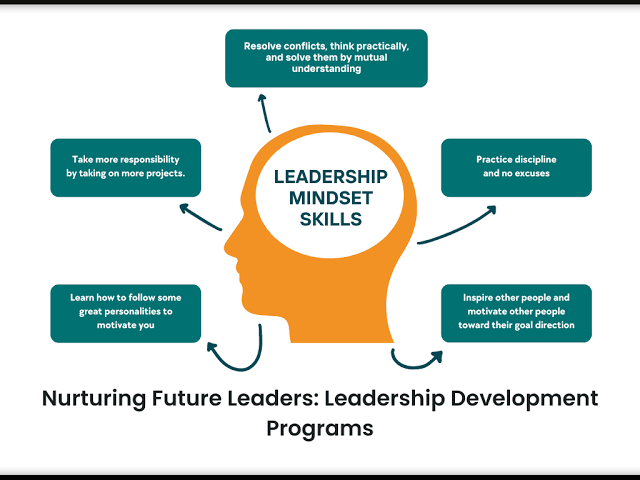Today, getting a scholarship is not just about good grades or financial need. While grades are still important, scholarship committees now look for well-rounded people who show leadership skills. From July 2025, many scholarship programs in Canada, the US, and worldwide will require leadership as a key part of eligibility. This is especially true for top awards like the Rhodes, Chevening, Mastercard Foundation Scholarship, and Canada’s Schulich Leader Scholarships.
Leadership skills not only reflect a candidate’s ability to make an impact within their community, school, or organization, but also signal their potential to become future change-makers. Students who can showcase real leadership qualities often stand out in scholarship applications, as they are seen as individuals who can carry forward the values and goals of the granting institutions.
Understanding What Leadership Means in a Scholarship Context
Leadership, in the context of scholarship eligibility, is not limited to holding a formal position such as a school prefect or club president. Instead, it encompasses a broader capacity to influence, inspire, and bring about positive change. Scholarship panels look for individuals who demonstrate initiative, problem-solving skills, a commitment to service, and the ability to lead others through challenges.
For instance, a student who initiated a community clean-up project, coordinated a fundraising campaign for a local charity, or mentored junior students can all be considered to have demonstrated leadership. The emphasis is on action and impact rather than titles alone. In 2025, many scholarships ask applicants to provide concrete examples of how they have led others or shaped outcomes in academic, community, or extracurricular settings.
Why Leadership is a Marker of Future Success
Scholarship funders invest in students who not only need support but who are likely to excel and contribute meaningfully in the future. Leadership is often associated with personal discipline, strategic thinking, emotional intelligence, and the courage to take initiative—all traits that are highly valued in professional and academic environments.
When a student displays leadership, they signal that they are capable of making the most of their educational opportunities. Many scholarships come with mentorship, training, and networking opportunities that are best suited for individuals who are proactive, collaborative, and goal-oriented. In this sense, leadership becomes both a predictor and a prerequisite for future academic and societal impact.
Types of Leadership That Strengthen Scholarship Applications
There is no one-size-fits-all definition of leadership, and scholarship reviewers recognize various forms of it. The most recognized types include academic leadership, community leadership, entrepreneurial leadership, and creative leadership. A student who organized peer tutoring sessions or helped develop an online resource platform demonstrates academic leadership. Community leadership may come from volunteering at a local shelter or leading advocacy campaigns on issues like mental health or climate change.
Entrepreneurial leadership involves starting something new, such as a small business or a social enterprise. Creative leadership could involve leading a drama club, film production, or an artistic initiative that brought students together for a cause. The key is to demonstrate initiative, planning, teamwork, and measurable outcomes. In 2025, digital leadership—like organizing online campaigns or virtual learning platforms—has also gained prominence as remote and hybrid learning remains a norm.
Leadership and Personal Development
Leadership is not only about influencing others; it is also a powerful tool for personal growth. Taking on leadership roles builds confidence, resilience, communication skills, and the ability to manage time and responsibilities. These attributes help students navigate the rigorous demands of academic life and adapt to unfamiliar environments—traits that scholarship sponsors want to nurture.
Scholarship programs often aim to develop leaders who will return to their communities and drive change. Therefore, applicants who have already taken steps in this direction, even on a small scale, are considered stronger candidates. By reflecting on their leadership experiences, students gain self-awareness and clarity about their values, goals, and aspirations—elements that strengthen both written applications and interview performance.
Demonstrating Leadership in Scholarship Applications
As of July 2025, most major scholarship applications include essays, personal statements, or interview components where students are expected to articulate their leadership experiences. This goes beyond listing activities in a résumé. Successful applicants explain what challenges they faced, what role they played, the actions they took, and the results they achieved.
Using frameworks like the STAR method (Situation, Task, Action, Result) can help students provide structured and compelling narratives. It’s also important to demonstrate reflective learning—how the experience shaped their perspective, what they would do differently, and how it influenced their future ambitions. Scholarship reviewers are drawn to stories that are authentic, thoughtful, and aligned with the goals of the scholarship.
Leadership in Group Contexts and Collaboration
A common misconception is that leadership always involves being in charge. However, effective leadership often includes listening, delegating, supporting others, and facilitating collaboration. Being a team player who lifts others and helps create inclusive environments is increasingly recognized as a vital leadership trait.
Many scholarships now focus on collaborative leadership, where the emphasis is on empathy, equity, and shared success. Applicants who highlight experiences in group projects, cultural exchanges, or volunteer teams—where they played a supportive yet impactful role—often score high on leadership criteria. This balanced perspective reflects a modern understanding of leadership that values cooperation over dominance.
Aligning Leadership with Scholarship Goals
To maximize impact, students should tailor their leadership examples to match the mission of the scholarship they are applying for. For instance, a scholarship that focuses on environmental justice would favor candidates with leadership experience in climate action or sustainability efforts. Similarly, a STEM-focused scholarship would appreciate leadership in science clubs, research projects, or tech initiatives.
In 2025, many scholarship programs also place a strong emphasis on diversity, equity, and inclusion. Leadership experiences that address social justice, accessibility, or empowerment of marginalized groups are especially valued. Aligning one’s personal story and leadership journey with the scholarship’s purpose demonstrates a deeper understanding of the award and a stronger case for selection.
Final Thoughts
Leadership is a powerful determinant in scholarship eligibility, offering a lens through which committees assess a candidate’s potential for long-term impact. In today’s scholarship environment, especially as of July 2025, being a strong academic is not enough—students must also be leaders in their own right.
Whether through formal positions or grassroots action, leadership reveals qualities of courage, initiative, and commitment to change. By actively developing these skills and reflecting them in their applications, students not only increase their chances of winning scholarships but also lay the foundation for meaningful academic, professional, and personal journeys. Leadership, after all, is not just a criterion—it is a lifelong asset.


